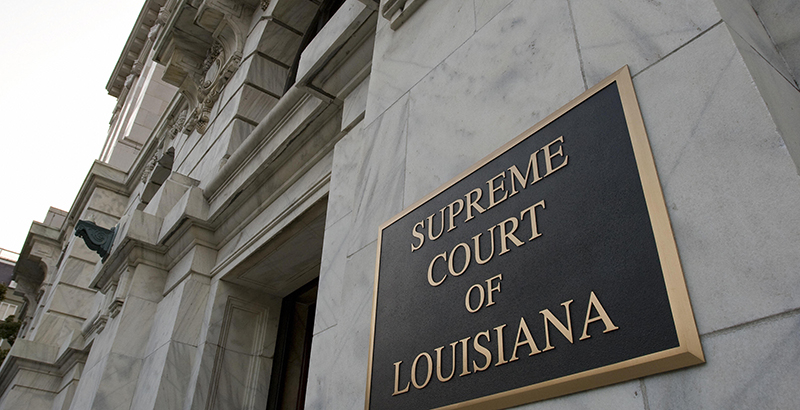Analysis: COVID-19 Presents a Chance for Bold Reform of Schools That Have Long Failed High-Needs Students. Louisiana Can Lead the Way

As our country and communities begin to pivot from the initial phase of fighting the horrifying impact of COVID-19 toward the future, we hope education and other leaders will remain focused on realities brought into stark relief over the past six weeks. COVID-19 has forcefully called our attention to glaring inequities in many areas of life, including education. We have two choices. We can ignore the obstacles that have only gotten more perilous for poor, black and brown students. Or, we can own up to inequities and forge new pathways rooted in racial justice and a genuine commitment to the well-being of all children.
Reforming the systems, practices and policies that were failing our children before COVID-19 should be at the core — not the periphery — of recovery and re-entry planning. We hope states like Louisiana will continue their fierce commitment to the academic needs and growth of all children and make even deeper investments in their emotional and mental health as well, choosing leaders who will make that a key priority. We also hope that commitment to bold progress is sustained, and even accelerated, in the face of leadership changes.
In Louisiana, 71 percent of students are considered economically disadvantaged and 41 percent are black. Before COVID-19, 22 percent of black students were mastering grade-level materials, compared with nearly half of their white peers. Black students were suspended at nearly double the rate of white students. Children with disabilities had a 22 percent gap in their graduation rates; English learners, a 45 percent gap. Louisiana was making steady progress in closing opportunity gaps as compared with other states, but state and local leaders need to double down on strategies that were working pre-COVID and invest in innovative strategies to help the most struggling learners.
These painful statistics should motivate a new normal. As federal stimulus money begins to flow, resources are being dedicated to new devices and better instruction using technology. Policymakers are discussing adding time to make up for learning loss. Educators are focused on making sure they know where students are academically when they return. All these things are critically important.
But in order for all children to thrive, we must also pursue bold new ideas. This is not a moment to rearrange the furniture and apply a coat of paint to the Titanic.
We must focus on the social, emotional and mental health needs of students and families — and do so with care not to go back to old ways. We need to increase the skill of educators in building deep and trusting relationships with students. We need to ensure that our teaching force of mostly white educators working with mostly black and brown students are aware of potential biases and have the tools to truly see and hear students. School systems need resources to help students and families access high-quality, culturally competent, school-based and community-based mental health and social services. Schools will need to dedicate time to nurturing the social and emotional health of students, and board members, state leaders and superintendents must value and prioritize this work. School cultures need to have high expectations for students and lots of supports to catch them if they struggle, academically or otherwise. The partnership between schools and families must be nurtured.
We also hope the state and districts will take this time to continue rethinking discipline and expand new approaches already underway. If we want to stem the school-to-prison pipeline that disproportionately impacts black and brown students, now is the time to take a different approach. The data are clear: We cannot suspend and expel our way to a successful system. More is required. Boys and young men of color must be seen as assets and not liabilities. Students should get a fresh start, and we should aspire to support each and every one of them to succeed.
Attending to the well-being of all children cannot be left to the school system alone. Community and faith-based organizations and neighbors can, and must, help schools. These are our schools, and our community’s children. We no longer have the luxury of blaming others or simply shuffling leaders. This moment presents the opportunity to recognize that some of the resources our children require are not found on school campuses. Access to health care, behavioral health services, support for families and caring adults must be derived from our larger community.
We should not go back to old ways of doing things that failed too many. Louisiana can continue to lead the way in putting the needs of our most marginalized students at the forefront as we rebuild.
Cami Anderson is the CEO of The Discipline Revolution Project, an organization working to realize equity across the country, including in Louisiana. She’s the former superintendent of alternative high schools in New York and Newark. Raymond A. Jetson is chief executive catalyst at MetroMorphosis, an organization focused on transforming inner-city neighborhoods from within. He’s an Encore Public Voices and Forward Promise fellow.
Get stories like these delivered straight to your inbox. Sign up for The 74 Newsletter

;)
